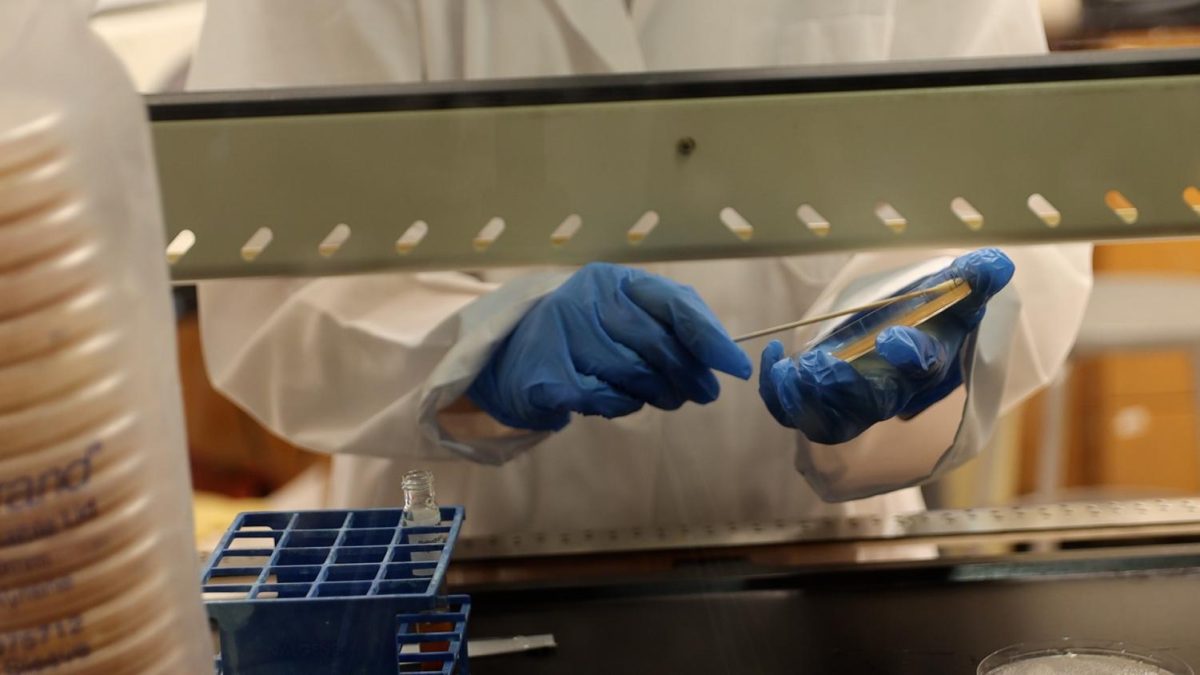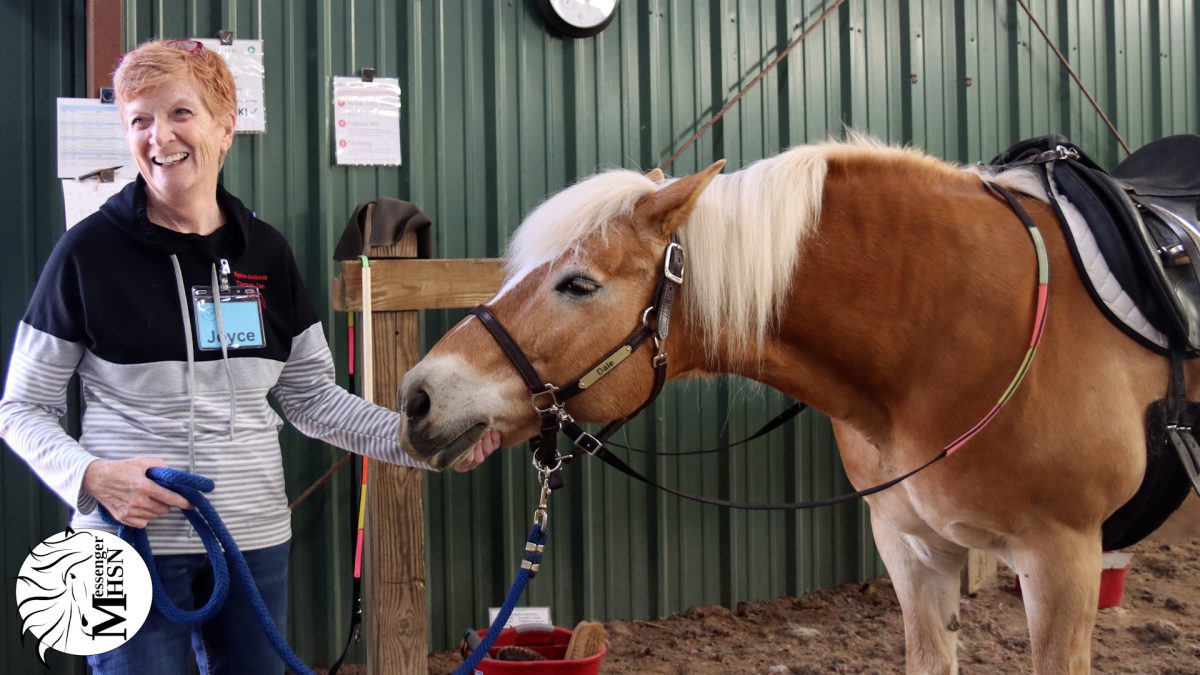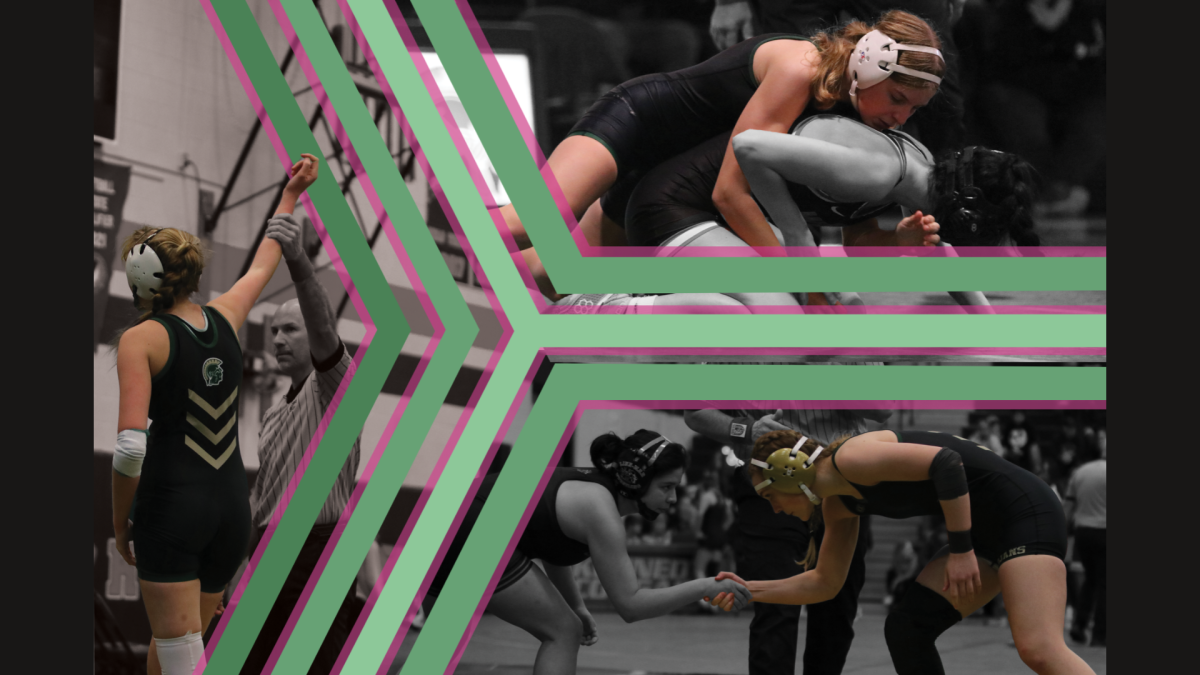Fourteen rows of wrestlers line up in the middle of the Xtream Arena, each holding a sign with their respective weight class. Before the champion matches begin, the girls march onto the mat in the Parade of Champions. The wrestlers buzz with excitement as they watch Jean Berger, the Executive Director for the Iowa Girls High School Athletic Union (IGHSAU), begin her speech. The arena is silent while listening to Berger; then the lights flash purple. The crowd erupts into cheers. The fourteen rows of girls all flip their signs, one by one, spelling out the word “SANCTIONED.”
IGHSAU hosted its inaugural girls state wrestling meet on Feb. 2-3, 2023, at the Xtream Arena in Coralville. Since the decision to sanction girls wrestling as the 11th girls high school sport in 2022, participation has spiked. Prior to official approval, schools created clubs and the Iowa Wrestling Coaches and Officials Association (IWCOA) held tournaments.
Sylvia Brofitt ‘26 joined wrestling in the inaugural season and noticed a big increase in participation due to the sanction.
“Our last tournaments more than 200 girls [wrestling] because so many more are interested in wrestling in the girls division,” Sylvia Broffitt said.
Seven years ago, 67 girls wrestled for their boys teams at schools across Iowa. The number jumped to 683 in 2021, according to the National Federation of State High School Associations. In 2022, during the first official season, a record number of 2,400 girls, wrestled for their school’s newly-created girls wrestling team. The University of Iowa contributed to the rise of female wrestling as the first National Collegiate Athletic Association (NCAA) Power Five school to implement a women’s wrestling program. With a 46% average increase of girls participating across all states this past year, the number of high school girls wrestling is predicted to double within the next year nationally.
West Girls Wrestling Club started in 2019. While small, the club successfully recruited around 20 girls before COVID-19, but only half returned after the pandemic. Before West’s wrestling club, girls who wanted to wrestle had to join the boys team.
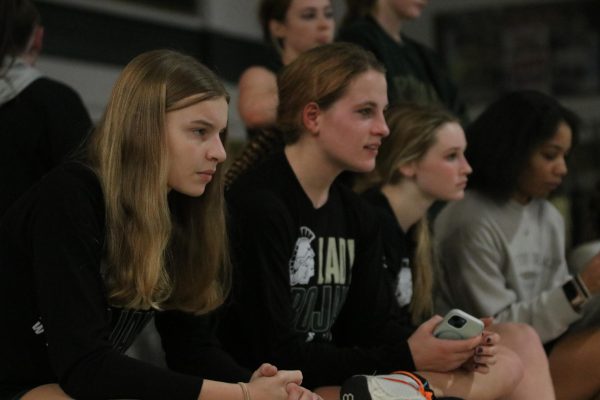
Laura Broffitt ‘98, Sylvia Broffitt’s mother, was among the first girls to join the boys wrestling team at West almost 30 years ago. She wrestled her freshman to junior year. “There was that question at the beginning [of wrestling] like, ‘What point are you trying to prove being on the [boys’] team?” Laura Brofitt said.
Before the sanction, in both practices and matches, boys regularly forfeited against girls. It was a controversial topic; some believed it was an appropriate decision, while others found it detrimental to both wrestlers.
“There were some people that were in favor of [me wrestling against boys] and thought it was great,” Laura Broffit said. “There were [teammates] who weren’t thrilled about having a girl on the wrestling team.”
Coming from a family of wrestlers, Emma Peach ‘24 wrestled with boys until her freshman year. Peach started wrestling when she was three years old and has won two consecutive IWCOA state titles. Although she has faced sexism on the mat, it has never discouraged her.
“[Some] boys are so competitive [about getting] beaten by a girl. If they are not able to beat me technique-wise, they have about 10-15 pounds of muscle on me,” Peach said. “One time, I was wrestling a boy who didn’t want to get beaten, so he pulled [my elbow] back into a really weird position and almost broke it.”
After the incident, Peach reflected on her coach’s anger toward the boy and felt that her experiences from those who respect and value her skill outweigh her experiences with sexism.
“At my old school, I had a level of respect from the boys and the coaches. Once they figure out that I’m at a higher level than they are, it’s either I get zero respect, or they’re totally down to listen to me,” Peach said. “I had one of the best [teammate] in my life because he was so down to take advice.”
Wrestling requires a tough mentality and strict self-constraint, and Peach finds that the hard work has been integral to shaping her character.
“Wrestling has made me who I am. I’m competitive. I have a good GPA because if you have bad grades, you’re not allowed in the practice room,” Peach said.
While Peach admits wrestling is a demanding sport and may not be for everyone, the community and developed relationships make it worthwhile to stay, even through burnout.
“I have a second family that I can go to,” Peach said. “Last year, I [said to my coach] ‘I don’t know if I’m ever gonna wrestle again’ and he told me that he loved me. He said that I was going to be me whether I wrestled or not, and that I was important in this world.”
Similarly, Laura Broffitt received overwhelming support from teammates and coaches.
“I felt like a part of the team. There were a few people specifically that went out of their way to make sure I felt welcome,” Laura Broffitt said. “Our heavyweight wrestler would pick me up before school when we had early morning practices and then after practice, he would take the time to make sure that I was learning things as well.”
Now watching her daughter wrestle in an official program, Laura Broffitt feels optimistic for the future of girls wrestling.
“When I wrestled, I didn’t see the reason behind having a separate sport for girls. Anyone who wanted to go out could be on the boys team,” Laura Broffitt said. “I’ve definitely changed my perspective, seeing so many girls who are interested in wrestling that wouldn’t have participated on a boys team.”
Charlotte Bailey, a mother to 2 wrestlers and the co-founder of Female Elite Wrestling (FEW), has been advocating for the sanction of girls wrestling since 2017.
“Before it was sanctioned, [wrestling] in high school didn’t attract very many female athletes because the only way to compete was to compete against boys,” Bailey said. “So outside of the [boys school] season, Female Elite Wrestling was able to offer opportunities for girls to compete against girls, and that helped grow a network.”
FEW specializes in training and hosting clinics and competitions for girls of all ages and skill levels. Bailey and her husband co-founded FEW when their daughter Jasmine Bailey ‘14 began wrestling at West.
“Jasmine was pretty successful right away and had some opportunities to compete in national events and to compete for Team USA,” Bailey said. “But the opportunities that her brother had, through USA Wrestling and wrestling inside the states and with national events, those opportunities weren’t available for girls.”
Bailey wanted to bring more awareness to girls wrestling and decided to start by implementing girls wrestling programs at the local high schools. However, engaging attraction for the sport wasn’t easy.
“In 2017, I started working with the Iowa Wrestling Coaches and Officials Association (IWCOA) and we made a proposal to the Iowa High School Athletic Association (IHSAA) to add a girls division to the Boys High School State Championship. That was turned down.” Bailey said.
Despite the setback, Bailey continued and successfully added a girls JV match to a boys tournament the following year. Even if Iowa wasn’t ready for girls wrestling to be sanctioned then, Bailey was determined and even reached out to USA Wrestling for support.
“[Turning me down] was exactly what I expected them to say,” Bailey said. “I was excited that the IWCOA was willing to set up a meeting and ask, “What is the big deal?” Having the support from USA Wrestling who recommended sanctioning girls wrestling in all of the states, there was a big deal.”
Iowa is the 34th state to sanction girls wrestling. However, in 2017, only six states officially hosted a sanctioned state championship. With an official system set up now, girls can now wrestle more than double the matches before sanction, providing valuable experiences for the girls to come.
“The sport is so new,” Laura Broffitt said. “But a lot of our girls starting in junior high will have two years of experience coming in. We’ll see a lot of growth in the sport in high school.”
For Bailey, the best part of the growing community is watching more girls grow confidence and have fun.
“I saw a video of the girls warming up in between sessions and dancing together. All the different teams dancing together as part of their warm ups,” Bailey said. “Just that that feminine feel of them being able to be social and having fun but going out there and working hard when it’s time to work hard. Being connected is the most fun,” Bailey said. While girls sanction is the start, Bailey says that the future now hold so many more opportunities for women and girls in career fields that weren’t seen before.
“It’s really important about the future is the number of girls and women that are transitioning into coaching and officiating. The opportunity for them to be in leadership roles and more than just managers, but coaching and officiating and being tournament directors, those jobs that are primarily male roles,” Bailey said.
For nationwide and state-wide, Bailey hopes to see states hold girls duel championships, where teams can qualify together. She is also excited to see more girls transitioning out of high school to college wrestling.
As West High continues to develop its own girls wrestling team, they will work to recruit girls and fill a complete varsity roster.
This story was originally published on West Side Story on January 30, 2024.


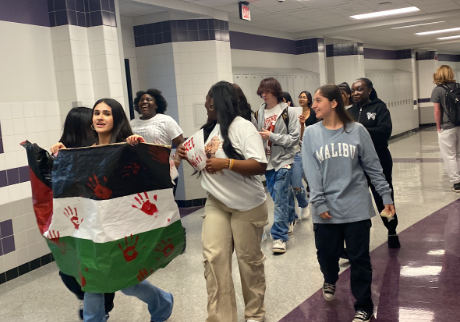


![With the AISD rank and GPA discrepancies, some students had significant changes to their stats. College and career counselor Camille Nix worked with students to appeal their college decisions if they got rejected from schools depending on their previous stats before getting updated. Students worked with Nix to update schools on their new stats in order to fully get their appropriate decisions. “Those who already were accepted [won’t be affected], but it could factor in if a student appeals their initial decision,” Principal Andy Baxa said.](https://bestofsno.com/wp-content/uploads/2024/05/53674616658_18d367e00f_o-1200x676.jpg)
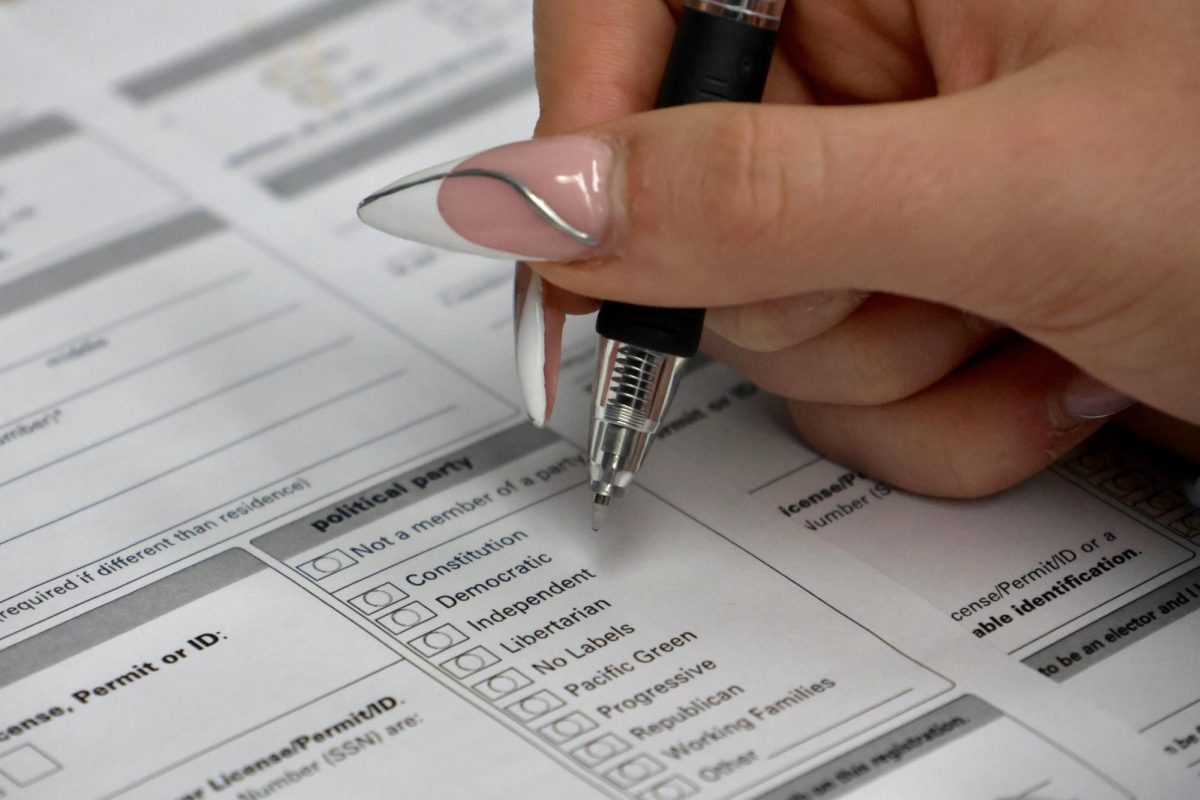



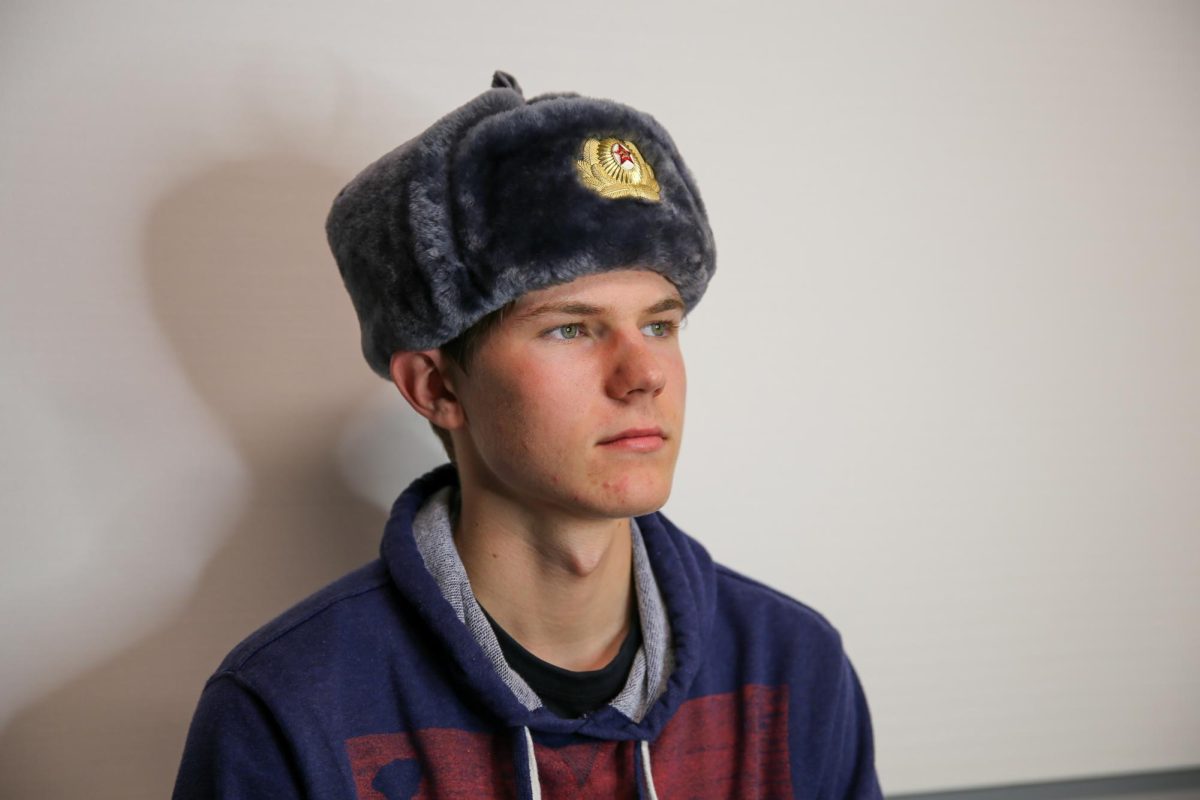

![Junior Mia Milicevic practices her forehand at tennis practice with the WJ girls tennis team. “Sometimes I don’t like [tennis] because you’re alone but most of the time, I do like it for that reason because it really is just you out there. I do experience being part of a team at WJ but in tournaments and when I’m playing outside of school, I like that rush when I win a point because I did it all by myself, Milicevic said. (Courtesy Mia Milicevic)](https://bestofsno.com/wp-content/uploads/2024/06/c54807e1-6ab6-4b0b-9c65-bfa256bc7587.jpg)
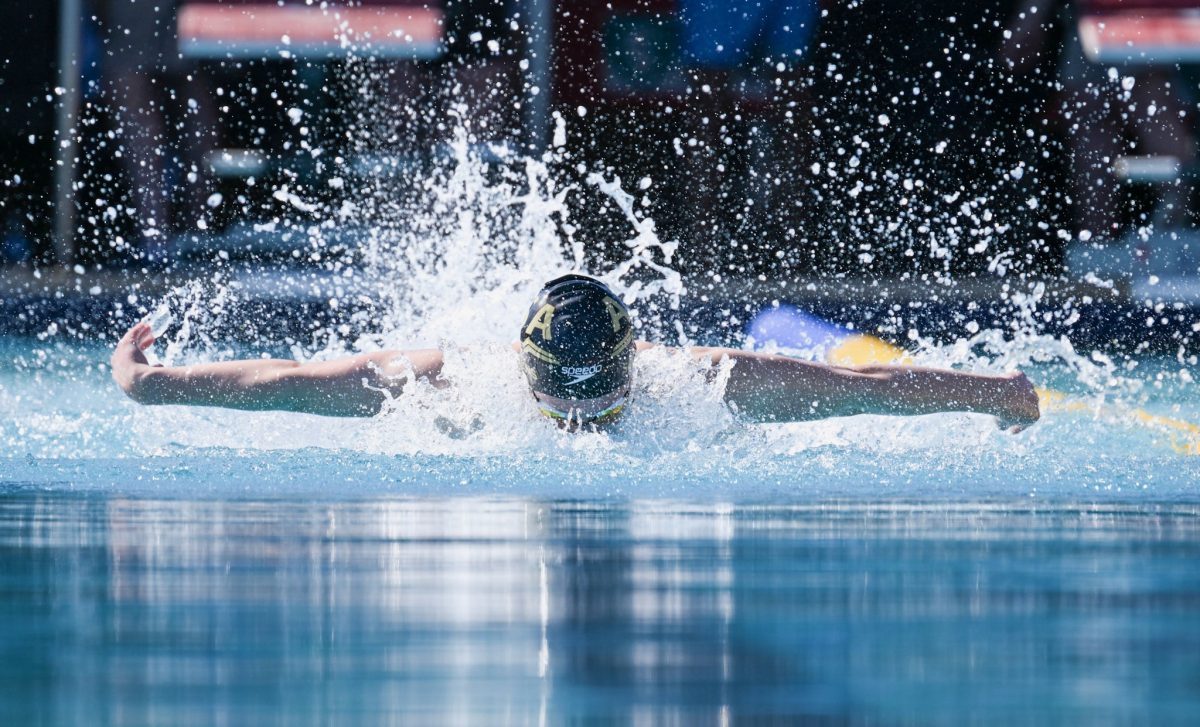
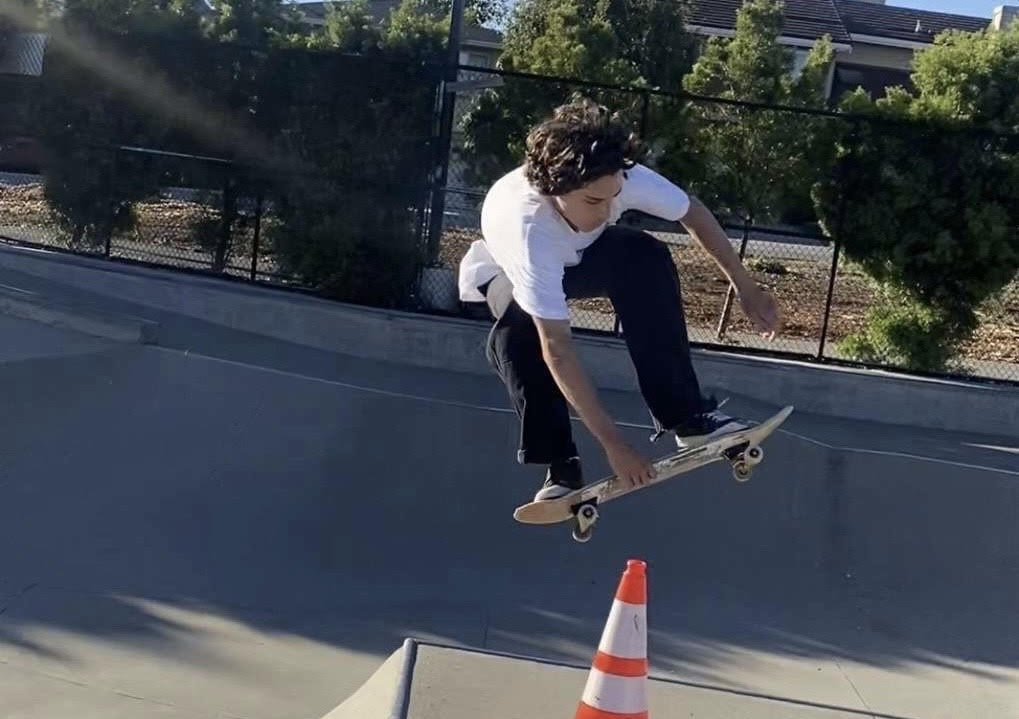

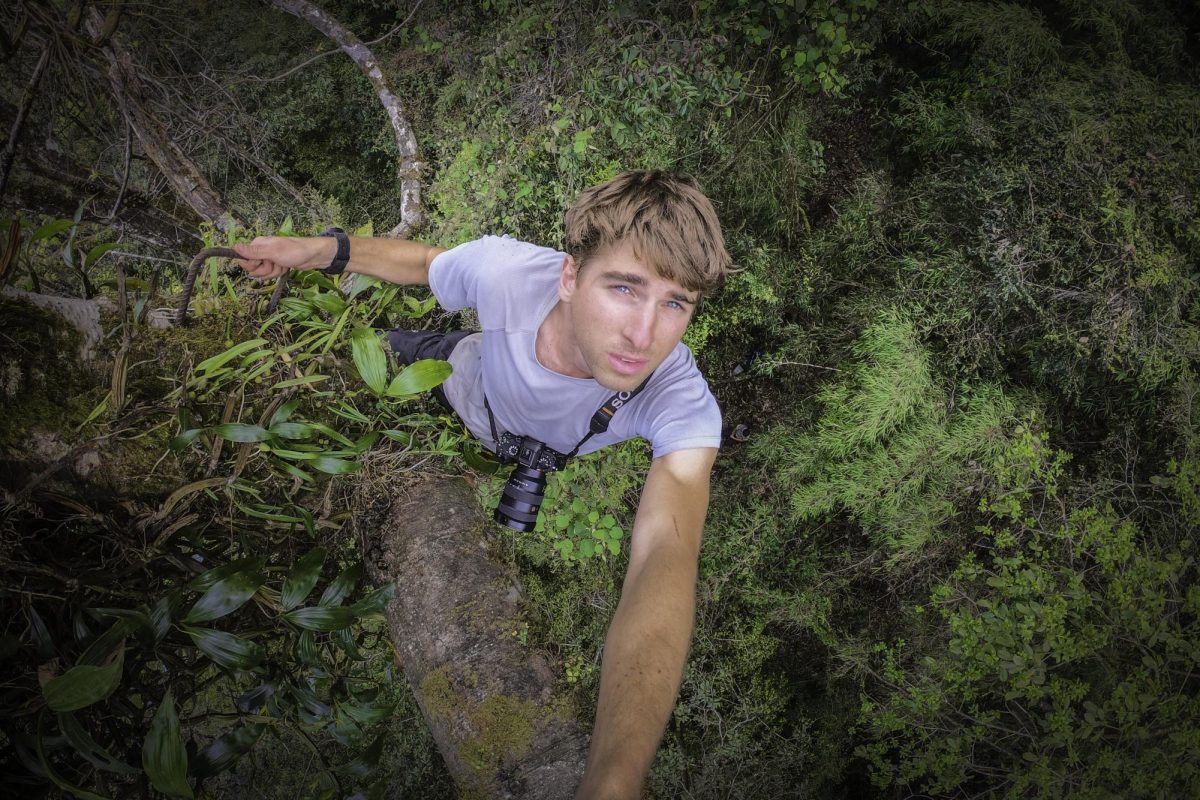

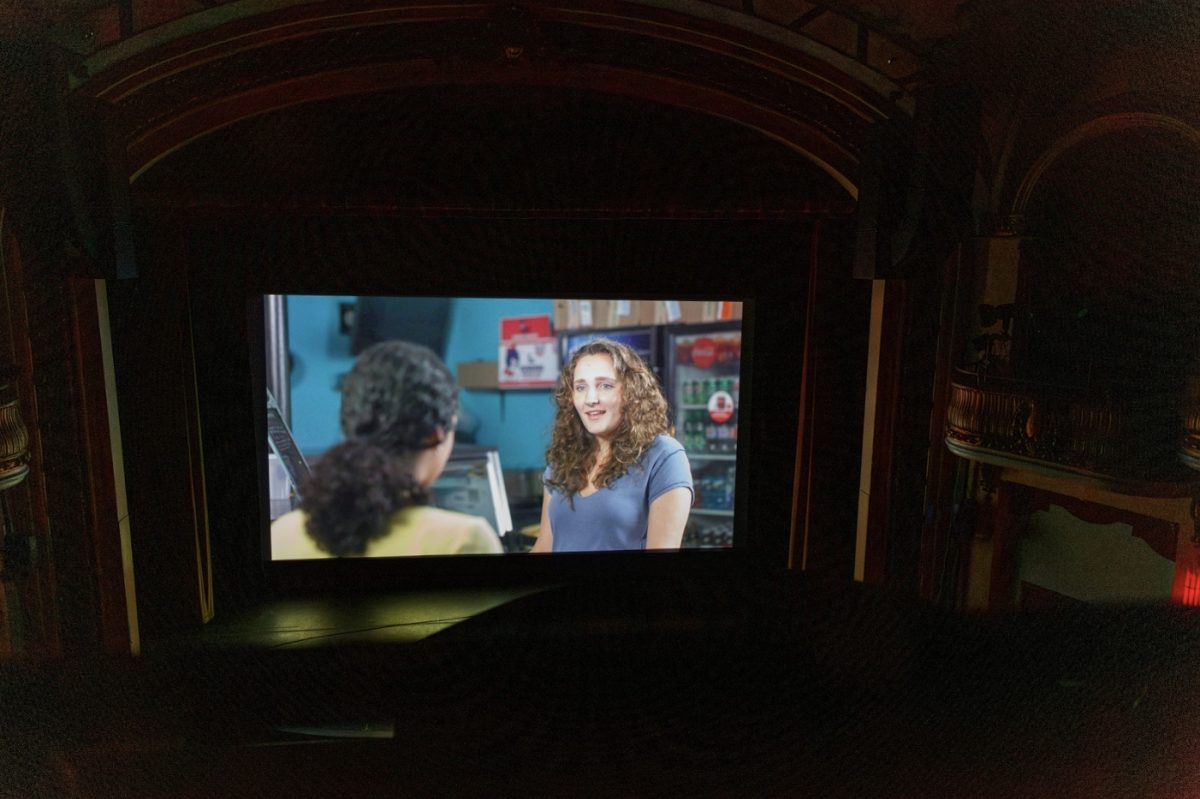

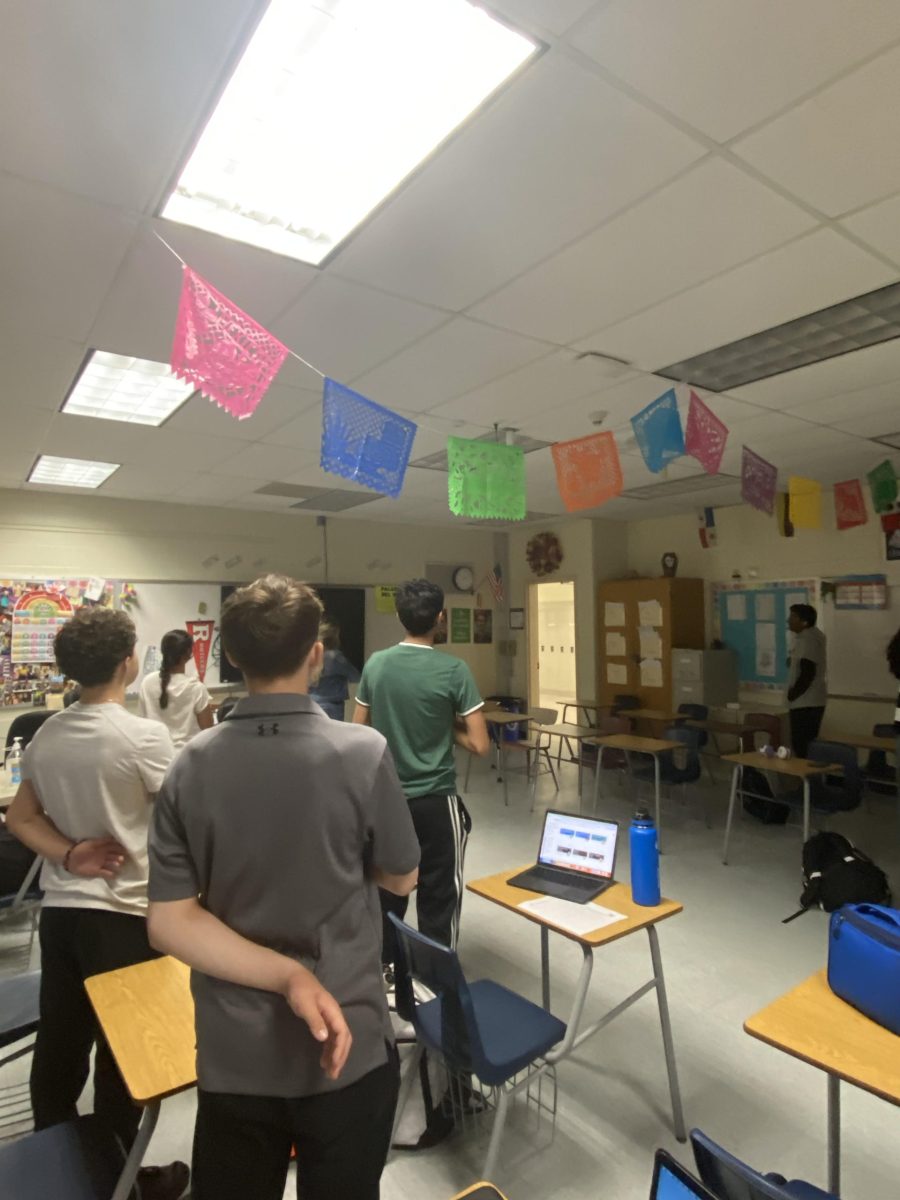
![The Jaguar student section sits down while the girls basketball team plays in the Great Eight game at the Denver Coliseum against Valor Christian High School Feb. 29. Many students who participated in the boys basketball student section prior to the girls basketball game left before half-time. I think it [the student section] plays a huge role because we actually had a decent crowd at a ranch game. I think that was the only time we had like a student section. And the energy was just awesome, varsity pointing and shooting guard Brooke Harding ‘25 said. I dont expect much from them [the Golden Boys] at all. But the fact that they left at the Elite Eight game when they were already there is honestly mind blowing to me.](https://bestofsno.com/wp-content/uploads/2024/05/IMG_7517-e1716250578550-900x1200.jpeg)
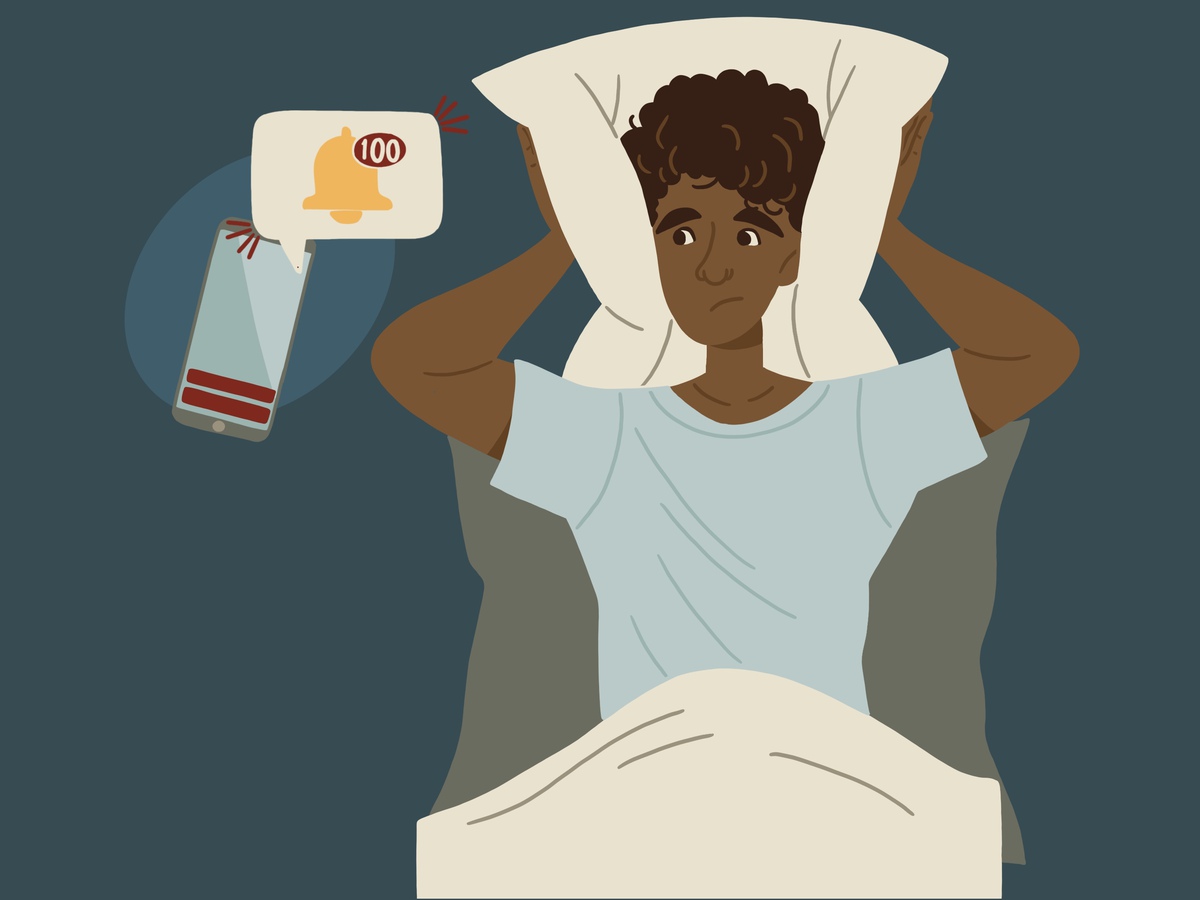
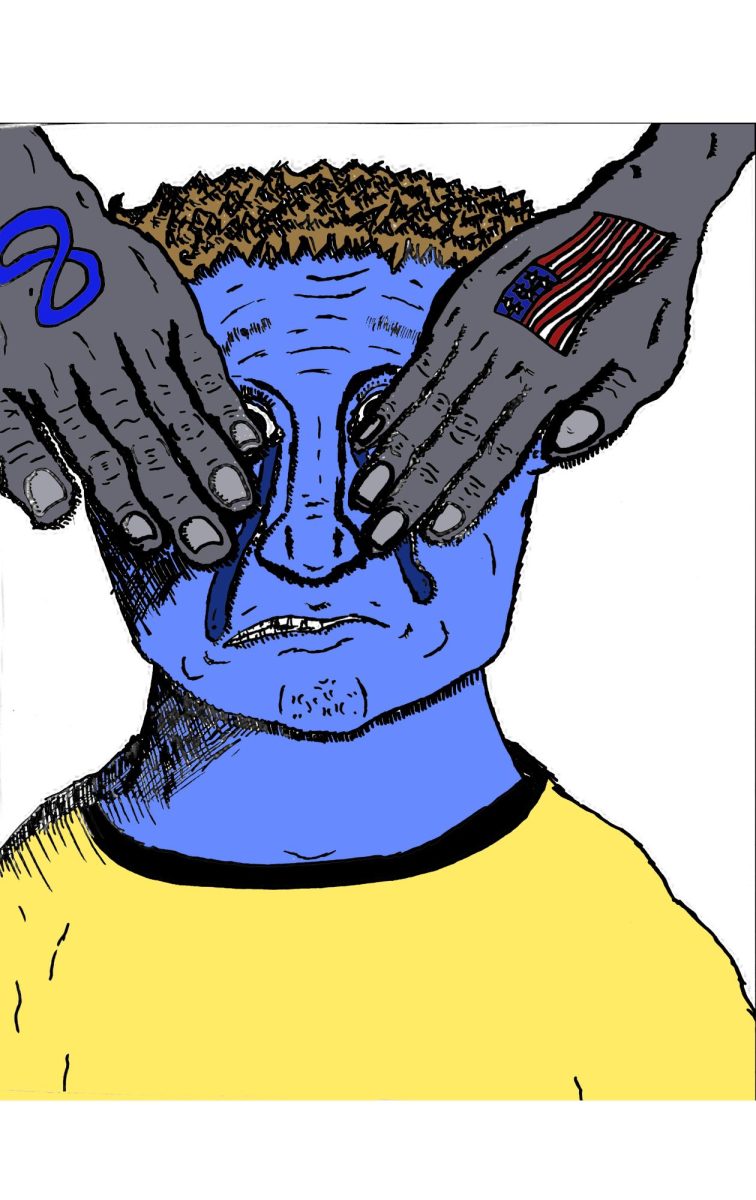
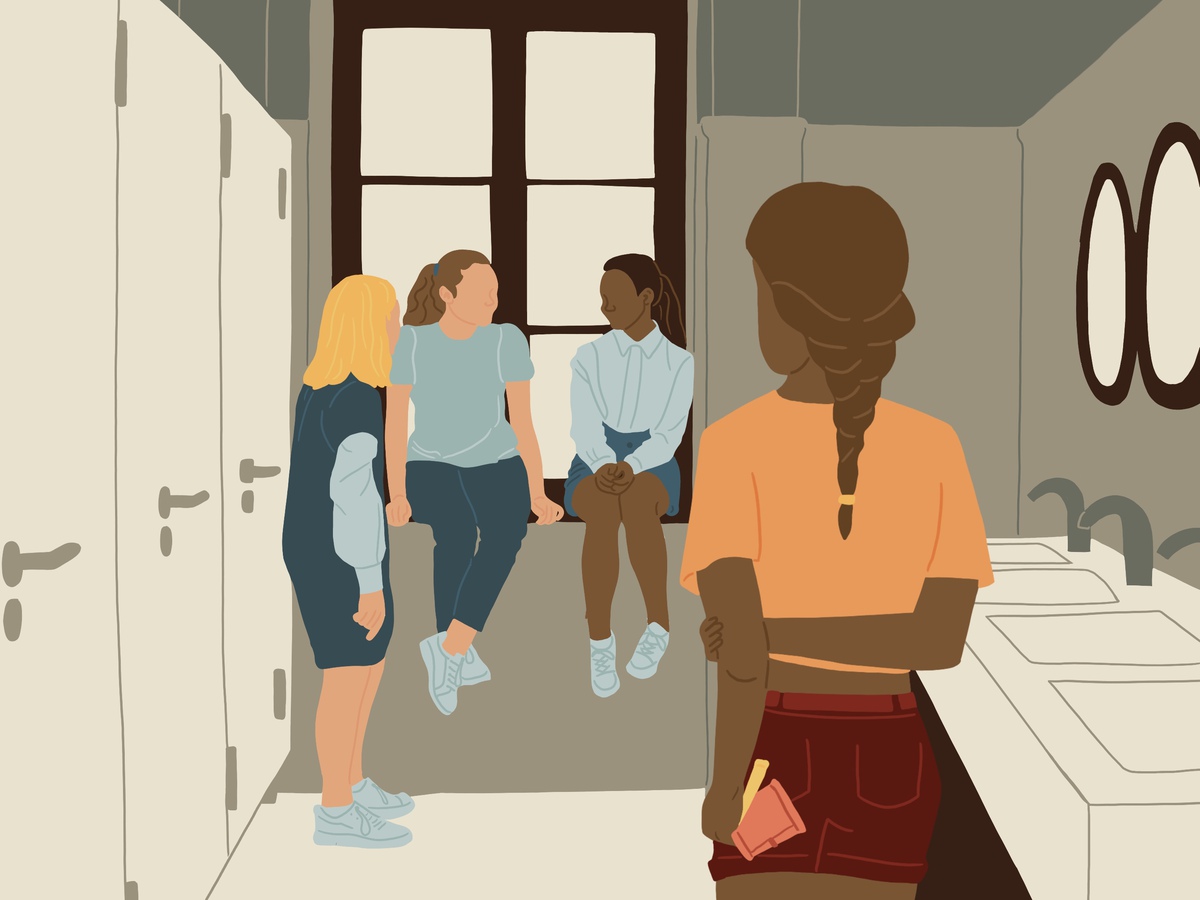



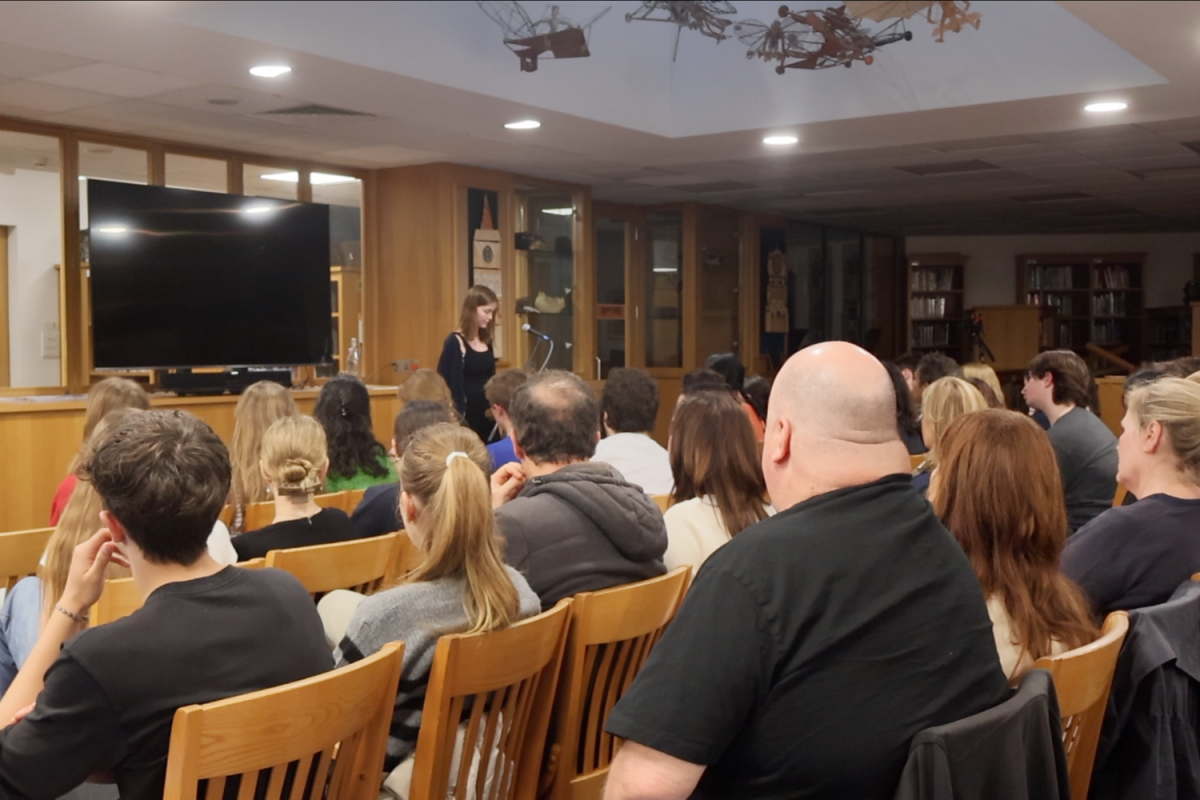

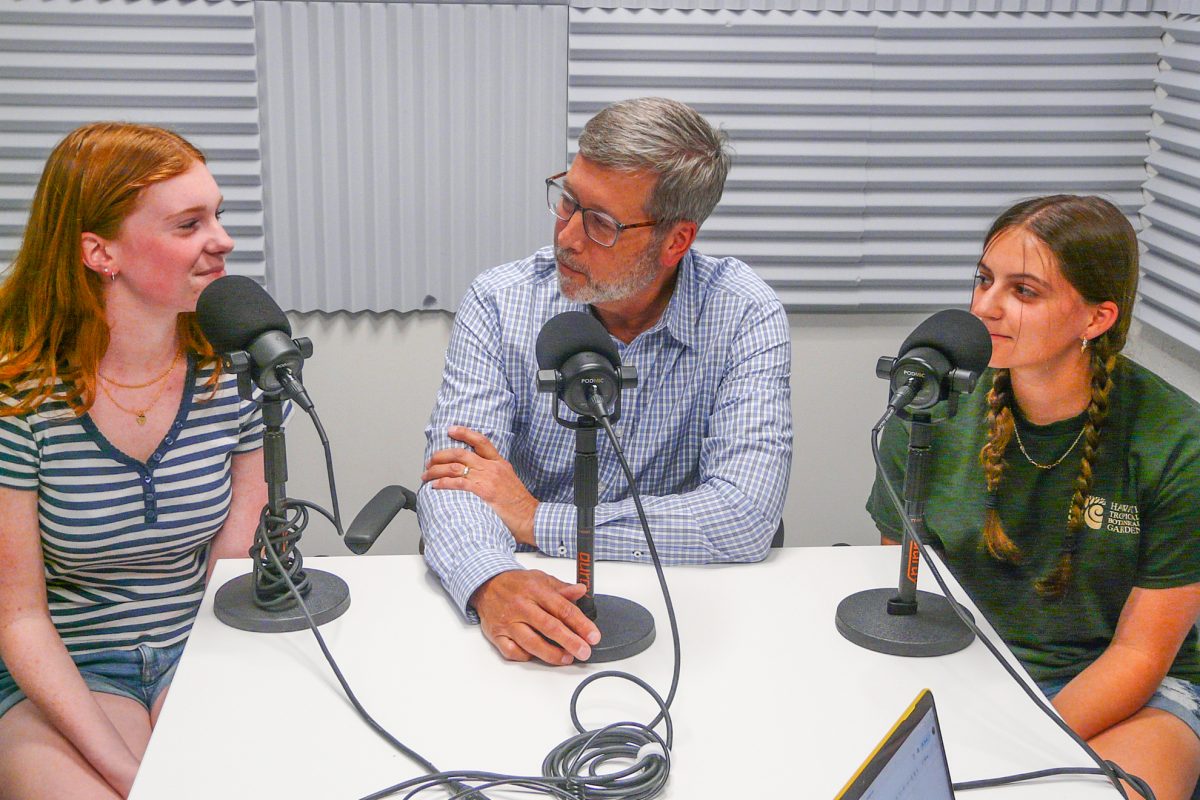
![BACKGROUND IN THE BUSINESS: Dressed by junior designer Kaitlyn Gerrie, senior Chamila Muñoz took to the “Dreamland” runway this past weekend. While it was her first time participating in the McCallum fashion show, Muñoz isn’t new to the modeling world.
I modeled here and there when I was a lot younger, maybe five or six [years old] for some jewelry brands and small businesses, but not much in recent years,” Muñoz said.
Muñoz had hoped to participate in last year’s show but couldn’t due to scheduling conflicts. For her senior year, though, she couldn’t let the opportunity pass her by.
“It’s [modeling] something I haven’t done in a while so I was excited to step out of my comfort zone in a way,” Muñoz said. “I always love trying new things and being able to show off designs of my schoolmates is such an honor.”
The preparation process for the show was hectic, leaving the final reveal of Gerrie’s design until days before the show, but the moment Muñoz tried on the outfit, all the stress for both designer and model melted away.
“I didn’t get to try on my outfit until the day before, but the look on Kaitlyn’s face when she saw what she had worked so hard to make actually on a model was just so special,” Muñoz said. “I know it meant so much to her. But then she handed me a blindfold and told me I’d be walking with it on, so that was pretty wild.”
Caption by Francie Wilhelm.](https://bestofsno.com/wp-content/uploads/2024/05/53535098892_130167352f_o-1200x800.jpg)



